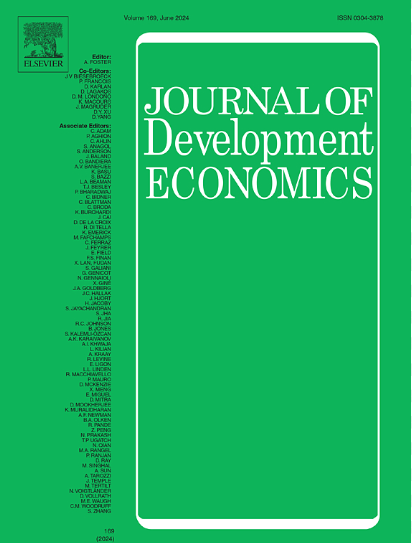所想、所言、所行:马里男性对性别暴力的辩护与实践
IF 4.6
1区 经济学
Q1 ECONOMICS
引用次数: 0
摘要
性别暴力在世界范围内普遍存在。虽然大多数文献关注的是女性作为GBV的受害者,但本文研究的是马里男性对GBV的辩护和实施,马里是世界上GBV患病率最高的国家之一。我们通过管理一组列表实验,将其与一组直接问题进行比较,以估计反应偏差,从而得出首都巴马科男性中八种与性别暴力相关的观点和行为的流行程度。我们发现对性别暴力的支持很大:近二分之一的受访者支持切割女性生殖器官或亲密伴侣暴力。此外,四分之一的人已经对成年女性进行过身体攻击。我们的研究结果还表明,当直接询问时,有几个问题会产生明显的反应偏差。对女性生殖器切割的支持被夸大了,实际的支持比公开声明的要低。相反,亲密伴侣暴力的正当理由被低估了,可能是由于社会压力。虽然反应偏差随应答者特征变化不大,但在受过中等教育的男性中,患病率系统性较低。我们的研究结果与应对性别暴力的法律框架以及普遍的社会规范形成的反应偏差一致,强调了在使用通过直接询问收集的数据时需要谨慎。本文章由计算机程序翻译,如有差异,请以英文原文为准。
What one thinks, what one says and what one does: Male justifications and practices of gender-based violence in Mali
Gender-based violence (GBV) is widespread across the world. While the majority of the literature focuses on women as the victims of GBV, this paper studies men’s justifications for and perpetration of GBV in Mali, one of the countries with the highest GBV prevalence rates in the world. We elicit the prevalence of eight GBV-related opinions and behaviors among men in Bamako, the capital city, by administering a set of list experiments that we compare to a set of direct questions to estimate response biases. We find large support for GBV: nearly one respondent in two supports female genital mutilation or intimate partner violence. Besides, one in four has already physically hit an adult woman. Our results also show that several questions suffer from significant response biases when asked directly. Support for female genital mutilation is overreported, with actual approval being lower than openly stated. Conversely, justification of intimate partner violence is underreported, likely due to social pressure against it. While response bias varies little with respondent characteristics, prevalence rates are systematically lower among men with a secondary level of education. Our results are in line with response bias being shaped by the legal framework addressing GBV as well as prevailing social norms, highlighting the need for caution when using data collected through direct questioning.
求助全文
通过发布文献求助,成功后即可免费获取论文全文。
去求助
来源期刊

Journal of Development Economics
ECONOMICS-
CiteScore
8.30
自引率
4.00%
发文量
126
审稿时长
72 days
期刊介绍:
The Journal of Development Economics publishes papers relating to all aspects of economic development - from immediate policy concerns to structural problems of underdevelopment. The emphasis is on quantitative or analytical work, which is relevant as well as intellectually stimulating.
 求助内容:
求助内容: 应助结果提醒方式:
应助结果提醒方式:


